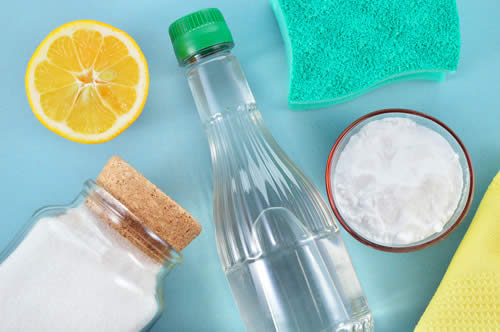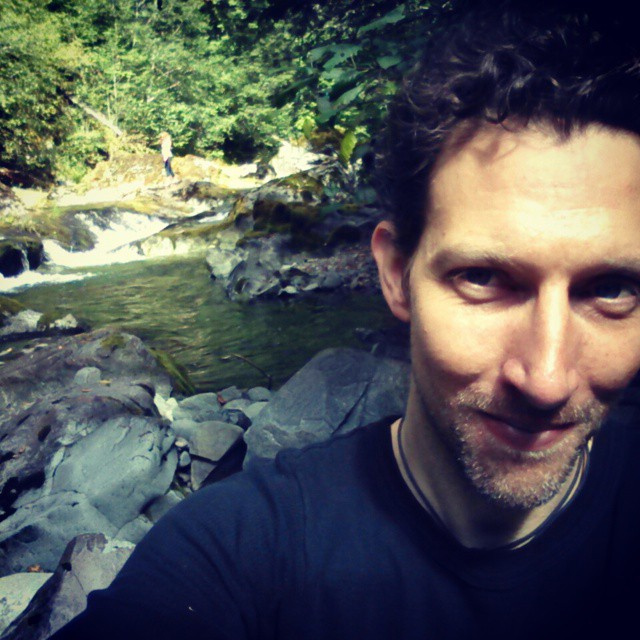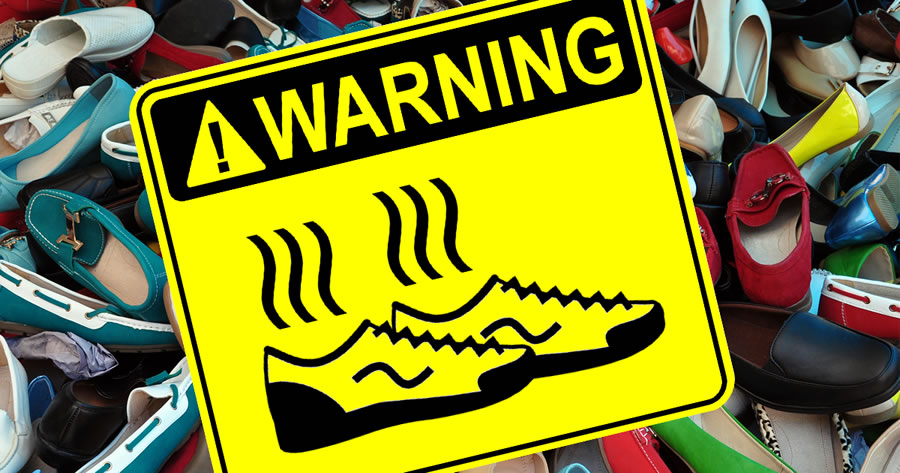Why Do My Shoes Smell So Bad? What You Can Do About It
The one-word answer to "why do my shoes smell so bad" is "sweat." Each foot contains a whopping 250,000 sweat glands. You sweat all over your body, of course, but feet and palms contain significantly more sweat glands than any other part of the body. And since feet are contained in shoes all day, the restricted ventilation augments sweat production.
Traditional shoes, especially those made of synthetic textiles like polyester, can be especially warm. The more material that's in your shoes, the more of a breeding ground for bacteria they become—the very smelly kind. Most of us regularly wash our socks and our feet, but shoes require special attention.
ℹ️ Did you know that Madeline Albrecht from Cincinnati, Ohio holds the world record for the most feet sniffed? Madeline worked for 15 years at a testing center for Dr. Scholl's and it was part of her job to sniff feet and armpits. Her record: 5,600 feet! That may not sound like a dream job, but the fact that she was paid to do it for 15 years shows just how serious of a problem foot odor can be.
Have you ever noticed that some people's feet have almost no odor while others could kill a canary? The reason is simply that some people sweat more and provide the warm, humid conditions that encourage bacteria to breed. Whatever the case, foot odor is a common nuisance in many households.

Preventative Strategies for Shoe Odor
First of all, keep your feet clean and dry them completely. A hot epsom salt bath is a pleasurable way to kill the bacteria. But if there's any water trapped between your toes when you put on socks and shoes, the bacteria production will ramp right back up again.
- Wicking Socks: Not everyone is a fan of wearing socks with their shoes, but socks made from wicking fabric will push away sweat so it can evaporate. (As long as your shoes are well-ventilated). Good wicking materials are merino wool, olefin, or microfiber blends. Remember to change your socks regularly. Read our blog post about the best socks for wide feet to learn more.
- Choose Breathable Shoes: Some materials are better than others for allowing shoes to ventilate, reducing bacterial growth and reducing odor. We know this firsthand at our shop, as Softstar's leather shoes are naturally more breathable than most shoes made with synthetic materials. Shoes with perforations or materials designed to be breathable are even better. All of our zero drop shoes for running use minimalist, high quality materials. Customize a pair with LITE (perforated) leather for maximum airflow.
- Give Your Shoes a Break: If you let your shoes rest for 24 hours after wearing them then they will air out and much of the festering bacteria will die.
Natural Cleaning Solutions for Shoe Odor
But... you're probably here because your shoes are already smelly. What can you do about it? As shoemakers, this is a question we hear a lot, and we have a few natural solutions. Basically, you need to either kill the bacteria in your shoes or prevent it from developing in the first place. You can combine these tips for maximum aroma control:
- Baking Soda: Sprinkling a couple teaspoons of baking soda into your shoes overnight will help reduce the smell. Using deodorant with a baking soda base and applying it to your feet and/or shoes can also be very effective.
- Vinegar Spray: Mix equal parts water and vinegar, spray it into your shoes to kill bacteria. Let them dry for at least 30 minutes before wearing them. Note: this could discolor some shoe dye, so be careful not to spray the outside.
- Mask the Smell: Although it does more to fight the symptoms than solve the problem, sometimes adding a more pleasant odor will be enough. You can try using citrus peel, dryer sheets, tea bags, lavender or other herbs. Just place them in your shoes, especially around the ball and toe areas, and let them sit overnight.
There you have it, everything you never wanted to know about foot odor. If you have any other natural solutions, we'd love to hear them!

Martin is a lifelong runner who began wearing minimalist shoes over 10 years ago when he found they alleviated his chronic foot pain, which eventually disappeared completely. He further studied proper running form through a series of workshops taught by the inventor of Correct Toes Toe Spacers, Dr. Ray McClanahan DPM. Martin has collaborated with several health care professionals to collect and share peer-reviewed studies that show the benefits of minimalist footwear. In his personal life, Martin loves living in the Pacific Northwest because it allows him to enjoy a variety of outdoor activities year-round, including hiking, cycling, rock climbing, surfing and snowboarding.


22 Comments